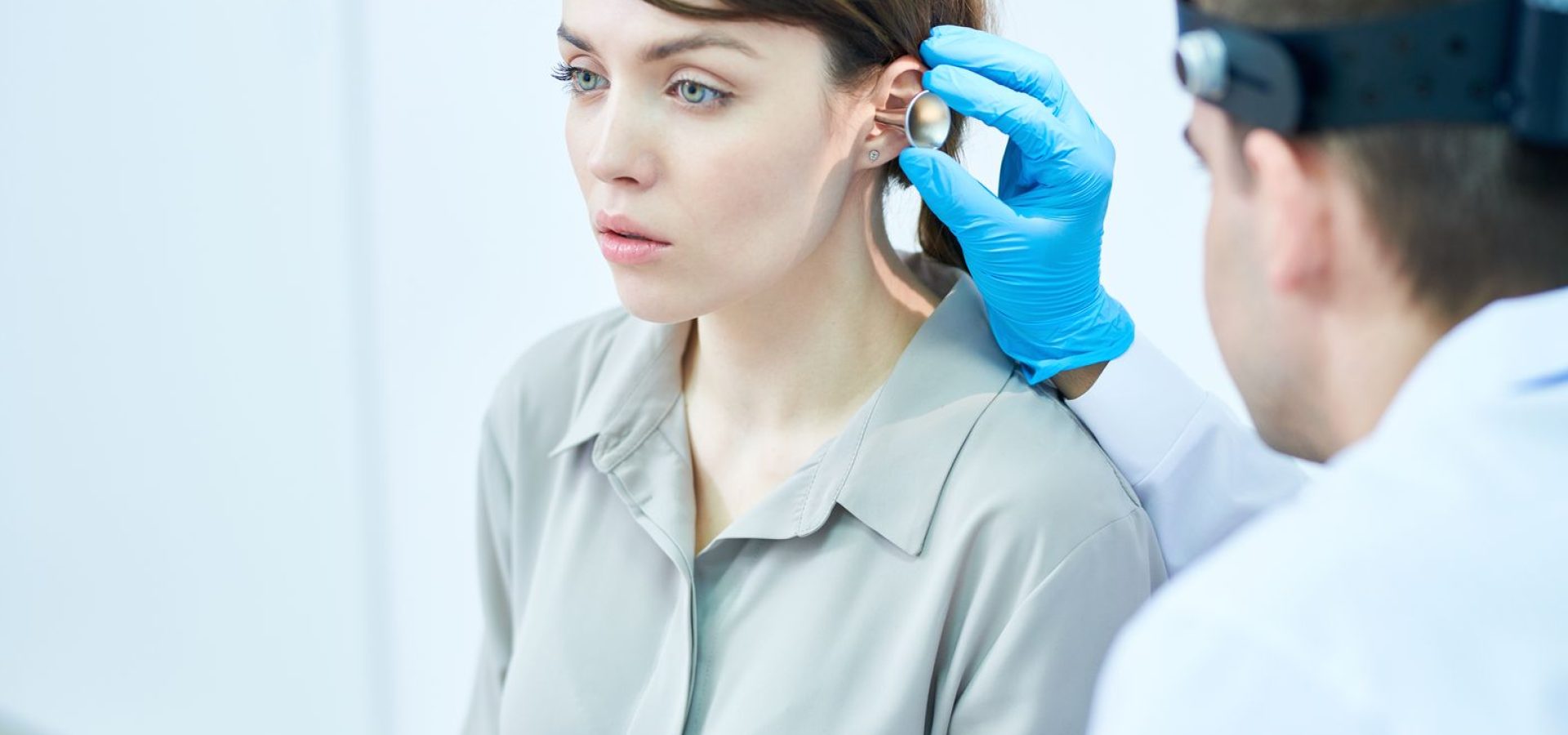Menu

Every hearing clinic will tell you that tinnitus, or ringing in the ears, is a common problem. Most people notice it sometimes, and it may only last a short while. However, it can be permanent and debilitating in some. About 37 percent of Canadians have a persistent form, making it harder to relax or enjoy life and affecting their sleep, mood and concentration.
Despite there being no cure for tinnitus, relief is possible with several treatment options. Let’s examine these, along with the causes of those problems, below.
Causes
1. Constant Exposure to Noise
Noise-induced hearing loss (NIHL) can stem from a multitude of causes. However, the biggest culprit is noise: concerts, table saws, gunshots—any prolonged exposure to loud sounds can lead to NIHL. The delicate hair cells in the inner ear, which detect sound waves, are damaged by excessive noise.
2. Medical Reasons
Less common causes for tinnitus, such as Meniere’s disease or an acoustic neuroma, may occur. A doctor can tell you if you have any of these conditions. In these cases, you must visit an Abbotsford hearing clinic to be sure.
Cures
1. Hearing Aids
You can improve the effects of tinnitus by using hearing aids. They do this by providing a continuous stream of sounds that helps to distract you from your tinnitus and causes you to focus on other external noises. Hearing aids also make it easier to hear, which means that you are less likely to focus on the task of listening, which will also distract from your tinnitus.
Even if you’re not dealing with tinnitus, certain hearing aid functions can improve your hearing, which will give you more patience for the act of listening and make it seem easier.
These changes won’t occur overnight. The goal with properly fit hearing aids is long-term adaptation; this means that you may have to spend time listening to your hearing aids before they adapt fully to your needs. The good news is that you will improve over time!
2. Prevention
Avoiding loud noise when you can is a brilliant idea since it may be the key to preventing the worsening of your symptoms. Signs that your tinnitus is getting worse include ringing, roaring, buzzing, or humming in your ears. It’s essential to get checked out by a hearing care professional if your symptoms worsen since treatment for hearing loss may also help reduce your tinnitus.
3. Sound Therapy
Beyond using hearing aids, other remedies fall under the broad category of sound therapy. These therapies include apps and other music or “white noise” programs that drown out the sounds associated with tinnitus or sessions with an Abbotsford hearing clinic under the supervision of an expert.
While it’s unclear how some hearing aids can affect tinnitus, they have been shown to reduce tinnitus’s loudness and make it feel less invasive. Some hearing aids come with dedicated sound therapy features for tinnitus, so talk to your hearing care provider about these possible options.
Adding to the sound therapy approach, new research shows promise for what’s known as bimodal devices. These combine a hearing aid-like device with another device that simultaneously stimulates the ears and a region on the head or neck. Clinical trials are required to determine overall effectiveness, but current laboratory findings promise relief.
Your doctor may be able to recommend a specialist in bimodal devices, particularly if you have severe or persistent tinnitus that hasn’t responded well to other treatments.
Conclusion
Several measures are available to reduce the risk of further damage to your ears—mainly if you work in an environment with extreme noise or if your tinnitus is due to existing hearing loss. Suppose you can switch to a quiet office. Depending on your work environment, you can wear earplugs or muffs to protect your hearing.
However, if your tinnitus results from a medication or a medical concern, it is best to talk to professionals regarding the matter, like those from Fraser Valley Beltone. We are an Abbotsford hearing clinic that approaches hearing care based on your lifestyle to understand what you enjoy in life and what’s essential in a healthcare partner. Book your appointment for a hearing aid and hearing test today!
Share Post
Facebook
Twitter
LinkedIn
Email
Reddit
Pinterest
